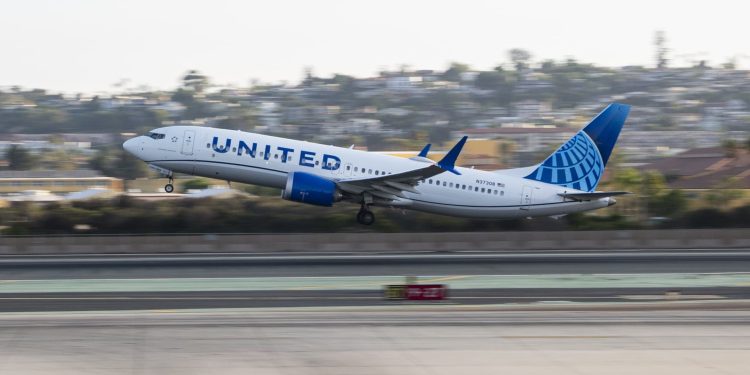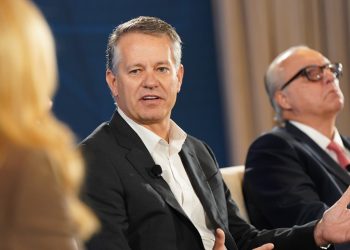A United Airlines Boeing 737-MAX 8 takes off from San Diego International Airport en route to New York on August 24, 2024.
Kevin Carter | Getty Images
United Airlines On Wednesday, it forecast better-than-expected fourth-quarter profits after a difficult start to 2025.
The carrier expects to earn between $3 and $3.50 per share for the final three months of the year, compared with $2.86 per share estimated by analysts.
United has increased its flight capacity, while its competitors have scaled back some of their growth plans after a glut of flights weighed on fares this year. The airline increased its capacity by 7% in the third quarter compared to last year. Passenger unit revenues for the quarter ended September 30 fell 3.3% for domestic travel and 7.1% for international travel. Sales of its lucrative loyalty program increased by 9%.
In an interview last month, United CEO Scott Kirby defended the airline’s growth plan and said the carrier was winning loyal customers through its network, new technology like free in-flight Wi-Fi, refreshed cabins and new lounges.
“These investments over nearly a decade, combined with excellent service from our people, have enabled United to win and retain brand-loyal customers, leading to economic resilience even with macroeconomic volatility during the first three quarters of the year and significant upside as the economy and demand improve in the fourth quarter,” Kirby said in a statement Wednesday.
Still, for the third quarter, United beat earnings expectations, even though its revenue fell short of estimates.
Here’s what United Airlines reported for the quarter ended September 30, compared to what Wall Street expected, based on estimates compiled by LSEG:
- Earnings per share: $2.78 adjusted vs. $2.62 expected
- Income: $15.23 billion versus $15.33 billion expected
United’s third-quarter revenue was $15.23 billion, up 2.6% from $14.84 billion a year ago. Net income fell 1.7% to $949 million, or $2.90 per share. After adjusting for non-recurring items, including debt, United posted a profit of $909 million, or $2.78 per share.
The carrier competes with Delta Airlines to appeal to wealthier travelers who pay more for their seats, and it has expanded its global network with far-flung destinations like Greenland and Mongolia. United said that in the third quarter its premium cabin revenue, which includes first class and other roomier seats, increased 6%. United’s sales in a no-frills core economy were up 4% year over year.
In the spring and early summer, United and other carriers cut their profit forecasts from earlier this year after passenger demand fell amid rising fares and an oversupply of flights weighed on airfares.









